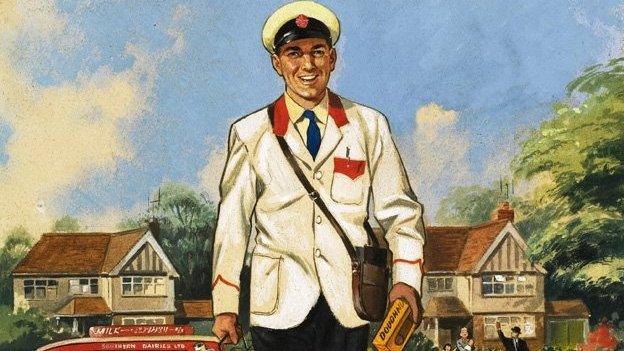Glass milk bottles make a comeback
- Published
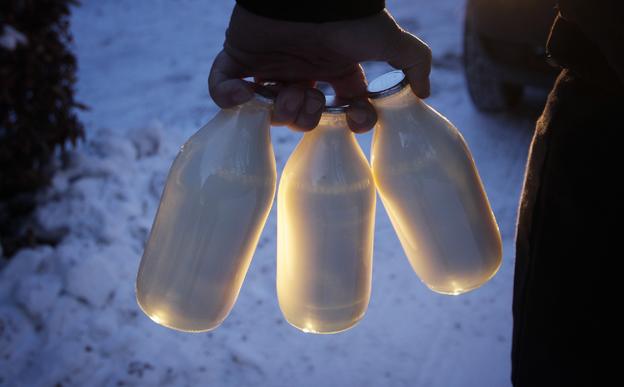
Dairy firms across the UK have seen a surge in demand for milk in glass bottles since the start of 2018.
Seventeen out of 20 dairy businesses contacted by BBC News have seen a rise in sales of glass milk bottles to homes and businesses amid concern over plastic waste.
Some have seen existing customers making a switch from plastic to glass.
Others have been contacted by new customers wanting to take delivery of glass bottles.
The boost is reaching firms up and down the country:
Thomsons in Lanarkshire has seen a 7% increase in demand for glass since January
Acorn in County Durham and Brecon Milk in South Wales have had a 10% rise in demand
Pensworth distributes milk across the South of England and Wales from nine depots. The 7% rise in glass sales since January has meant they're investing in a new production line
Creamline in Manchester have signed up more than 1,000 new customers, with most of that growth coming from online orders
In Carmarthen, Nigel Dragone of Nigel's Dairy has doubled glass bottle deliveries from about 4,000 to almost 9,000 a week. "We feel like we've won the lottery," he said.
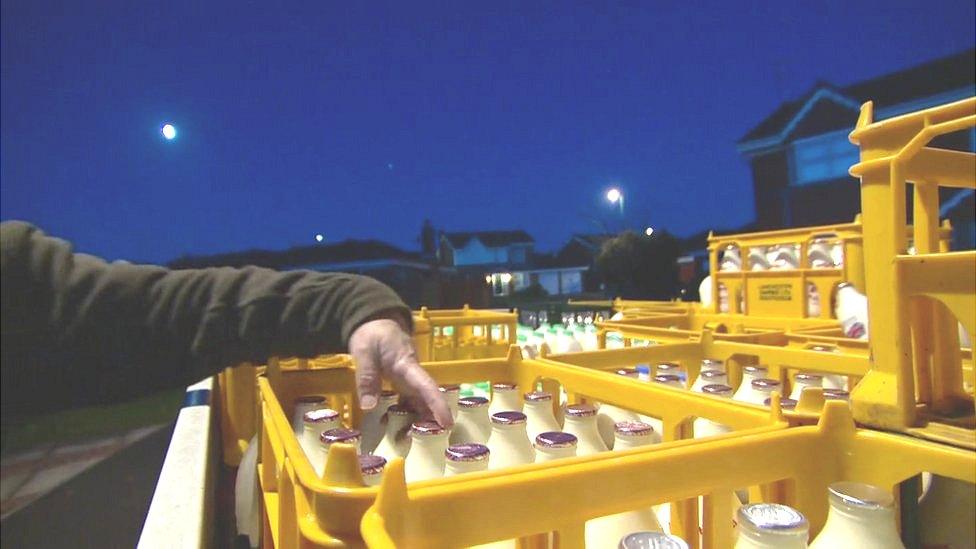
The largest deliverer is Muller-owned Milk & More. Two-thirds of the bottles they send out on their floats are glass and this is a big growth area for the business.
"Since the start of the year, Milk & More has had an additional 15,000 new online customers, of which 90% are ordering milk in glass bottles," the firm says.
Really green?
Arla do not deliver, nor offer, glass-bottled products and Dairy Crest sold off its milk business in 2014. The other smaller wholesale dairies contacted said they did not sell glass and had no plans to, but one was offering pouches to cut waste.
"Some of our bottles could be reused 70 times," says Chris Austin
Waste charity Wrap said the environmental benefit is difficult to decipher. "For glass to be the better environmental option from a carbon perspective, our research shows that any bottle needs to be reused at least 20 times," a spokesperson explained.
"Less than that and the lifecycle carbon footprint would be greater than for plastic. In practice, glass bottles survive being reused around 18 times."
Industry body DairyUK said it could not be certain of the return of the milkman and a glass-bottled pint, even though this anecdotal uplift was good news.
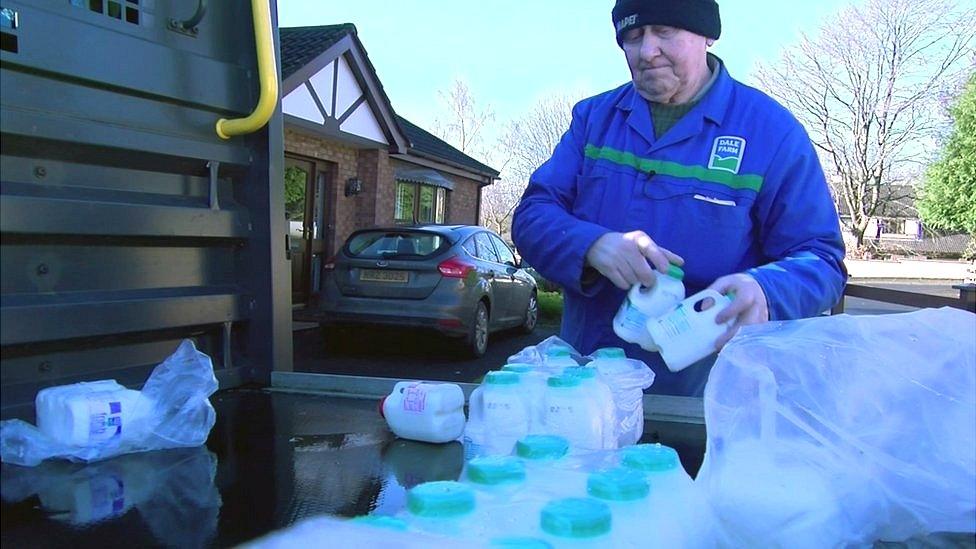
Plastic bottles are not necessarily worse for the environment than glass
Their annual figures for home delivery lump glass and plastic together and as their data is updated in July, they added it was too early to say.
Milk deliveries have been in steady decline since the 1980s and doorstep accounts for just 3% of the market.
The UK's five big supermarkets say they have no plans to start stocking milk in glass bottles.
Extra workload
More than 190,000 pints of Lanchester Dairies' milk are delivered all over the North East every week. They have put 4,000 extra glass pints on to doorsteps weekly since Christmas.
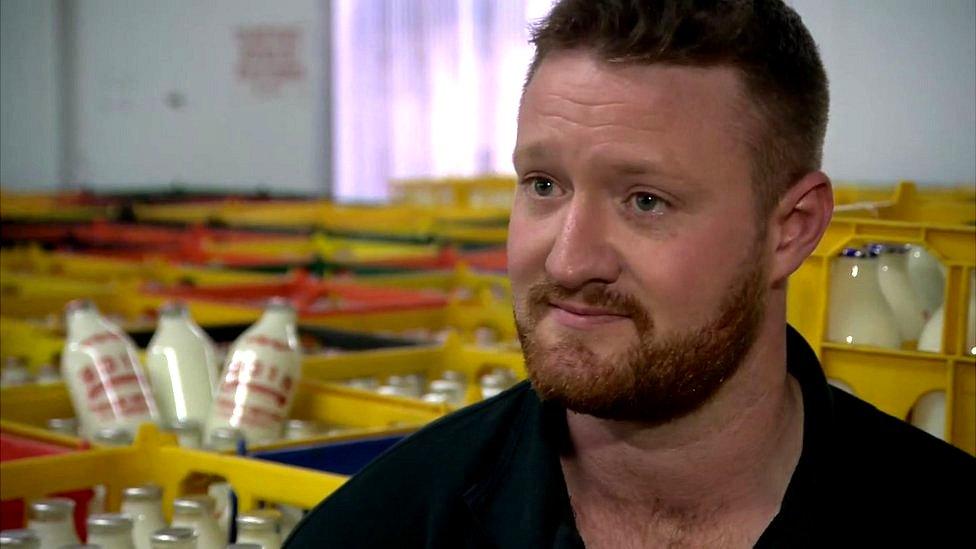
Chris Austin says glass is good for his family's business
Production manager Chris Austin says this is the first time his family's firm has seen a rise in sales in decades. "I think it's all on the back of everyone being more aware of the environmental impact that plastics have as opposed to glass returns," he said.
"Yes, it is more expensive. But when you think you're getting your milk delivered, by a local businessman, and some of our bottles are up to two or three years old, reused 50 or 60 times."
But glass can be a mixed blessing. Clare Lillie and her family run Lillie Brothers in Cornwall, a business that never stopped delivering milk to local doors. They have had to introduce three new rounds this year.
"We would never have predicted that five years ago," said Clare, who has been starting work at 2am since February because of the extra workload.
"We are also very conscious still of our carbon footprint, so we are careful with not having too many suppliers, deliveries and have our own delivery vans out unnecessarily while still providing our customers with the service they deserve."
It all started when a local hairdresser got in touch when her village wanted to become plastic-free, a movement growing in coastal communities in the South West.
'Pricey' bottles
Others don't believe glass is all it's cracked up to be. Our Cow Molly is a family-run dairy business in Sheffield that offers glass, but also buys locally recycled plastic for their cartons.
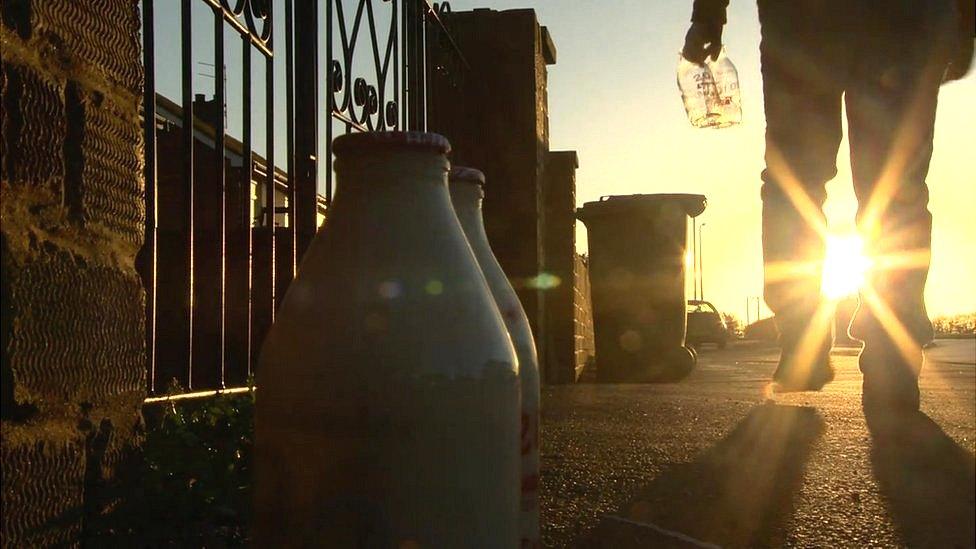
The firm's Dan Andrew said switching had been minimal among their 850 doorstep delivery customers.
"If you're a family and you're on a budget, it's pricey. A glass bottle on its own costs us over 30p and we lose 40 pints a week through smashing or people keeping them," he said.
"And to wash those bottles, you're using chemicals and heating water. Farming has always cared about the environment, it's the big companies that don't."
- Published4 December 2017
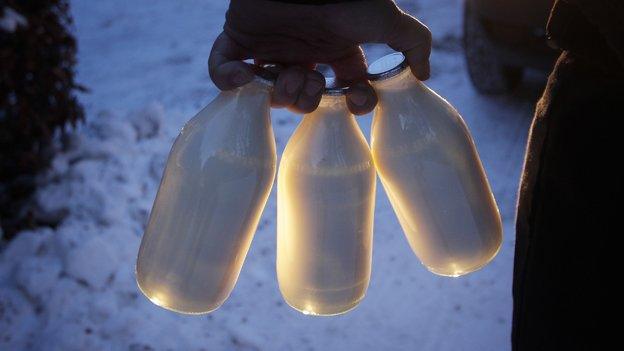
- Published26 September 2014
